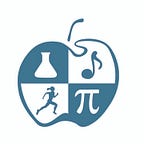Are You Listening? Advancing Equity in STEAM
By Karyn Warner, Associate Director of STEAM Initiatives
Are you a good listener? Last fall, I practiced my listening skills when I participated in a 100Kin10 project, the UnCommission. I was part of a volunteer team that listened to 500 young people sharing their personal experiences with STEM. The stories I heard brought both tears of joy and sadness.
Recently, the UnCommission reported on the findings based on these stories, which helped illuminate inequities and challenges of the education system, as well as places for hope. One overall finding that stood out to me: ”Many students experience racism in STEM classes. This has a powerful impact on them both emotionally and academically.”
“When I was in high school, it used to be extremely obvious that there was a lack of racial equity within STEM programs in my school system. I was a CAS/AP student in high school, and I was constantly the only black child in my math and science classes, all my classes really. Being the only black child in my math class, in particular, was extremely isolating. I was ahead of a subject in math, and I remember distinctively being asked if I was in the right room every start of the semester, whether by students, or by the teacher, or both. It was so hard being the only black student, not having anyone to relate to me or my unique experience.”
As educators, we know students need to feel they are valued, they belong, and their learning is engaging and relevant to their world outside the classroom. I heard this message time and again from the students themselves as I listened to the UnCommision storytellers. One student said: “I got to 11th and 12th grade when I finally got a teacher who did these hands-on, like engineering projects for us…we did a final project where instead of like, having a test…we did a project where you would design a trebuchet…to hit our teacher in the face with like little pies and stuff. And that really got me more interested in that, that engineering bit…seeing the like, actual practical application of math for the first time…for a 16-year-old was sort of mind-blowing…teachers told me…, ‘Oh, you’ll use math…’ but I’d never really understood it.”
The takeaway? STEM education needs to center on students’ lived experiences. As educators, we can help them see themselves as mathematicians and scientists. Talia Milgrom-Elcott, founder and executive director of 100Kin10, explains 3 powerful levers to make sure more students have the opportunities they deserve in her article Students Of Color Are Missing Out On STEM Opportunities, So The Planet Is Missing Out On Their Brilliance. Here’s How We Finally Achieve Equity In High School STEM:
- Ensure high school STEM coursework is relevant and applicable to a 21st-century context
- Support more teachers to facilitate active and applied STEM learning
- Create systems that ensure equitable STEM teaching and learning
Where are examples of programs providing equitable STEM teaching? Milgrom-Elcott’s article highlights many. For example, check out Project Lead The Way’s preK-12 pathways in computer science, engineering, and biomedical science, which engage students in solving real-world problems through hands-on projects. Milgrom-Elcott: “Teachers want to thrive and teach effectively, and students want to have agency in their learning and engage in learning that is relevant to their lives and career aspirations. To do so, teachers, students, families, school districts, universities, professional development organizations, science-rich institutions, workforce development organizations, and others can and must work together so that all high school students, especially Black, Brown, and Indigenous students, have the chance to participate in learning that is meaningful and relevant.”
My next step is to develop a more critical lens to intentionally elevate our BIPOC students. Yes, we want to support all students, but we aren’t elevating all students equitably yet. Too many students still do not have regular access to high-level math and science classes where they DO science instead of memorizing scientific concepts. I’ve come to understand Black history month is important to me as a White person, because it gives me a chance to recommit myself like I do with new year’s resolutions.
This February, I focused on how well I truly listened and responded to students’ stories. I make intentional decisions on being more inclusive in the programming I create in my role at work. Personally and professionally, I am resolute to dig deeper, listen more carefully, and respond more lovingly, especially to what I hear from BIPOC young people. What are your own students saying about their experiences with STEM? How can what they say influence us so we can provide them with the opportunities they deserve? What are your own stories about STEM? I’m listening. — Karyn Warner, Associate Director of STEAM Initiatives
